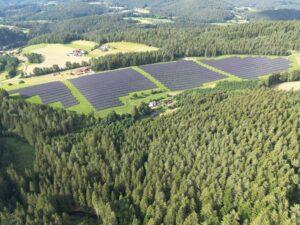Nestlé Germany sources green electricity from German plants
Since July, Nestlé Germany has been purchasing electricity from German photovoltaic and wind power plants via the BKW Group, an energy and infrastructure company based in Bern. Nestlé aims to cover its entire global electricity needs from renewable energies by 2025.

Nestlé Germany has concluded a comprehensive power purchase agreement with the Swiss company BKW, which has come into effect from July 2024. The contract ensures that the German production sites in Hamburg, Neuss and Biessenhofen are supplied with electricity from photovoltaic and wind power plants, according to a statement issued by the company. The annual energy requirement of Nestlé’s sites in Germany is around 113 gigawatt hours, 70 per cent of which is to be covered from renewable sources in the future.
With the new power purchase agreements (PPAs), Nestlé Germany will reportedly purchase 80 gigawatt hours of electricity from renewable sources per year by the end of 2026. Nestlé is also planning to invest in new plants and certificates of origin to cover the remaining demand. According to Nestlé, this already exceeds the average of 56% of renewable energy use in Germany.
Lebensmittelpraxis
Related news
Lidl is building a new administrative and logistics centre in Straubing
🎧 Hallgasd a cikket: Lejátszás Szünet Folytatás Leállítás Nyelv: Auto…
Read more >Nestlé to sell remaining ice-cream assets but commits to Froneri venture
🎧 Hallgasd a cikket: Lejátszás Szünet Folytatás Leállítás Nyelv: Auto…
Read more >Related news
Spring whirlwind at the 60th anniversary EuroShop trade fair
🎧 Hallgasd a cikket: Lejátszás Szünet Folytatás Leállítás Nyelv: Auto…
Read more >The GKI business climate index rose in February
🎧 Hallgasd a cikket: Lejátszás Szünet Folytatás Leállítás Nyelv: Auto…
Read more >









